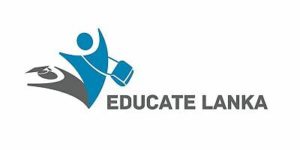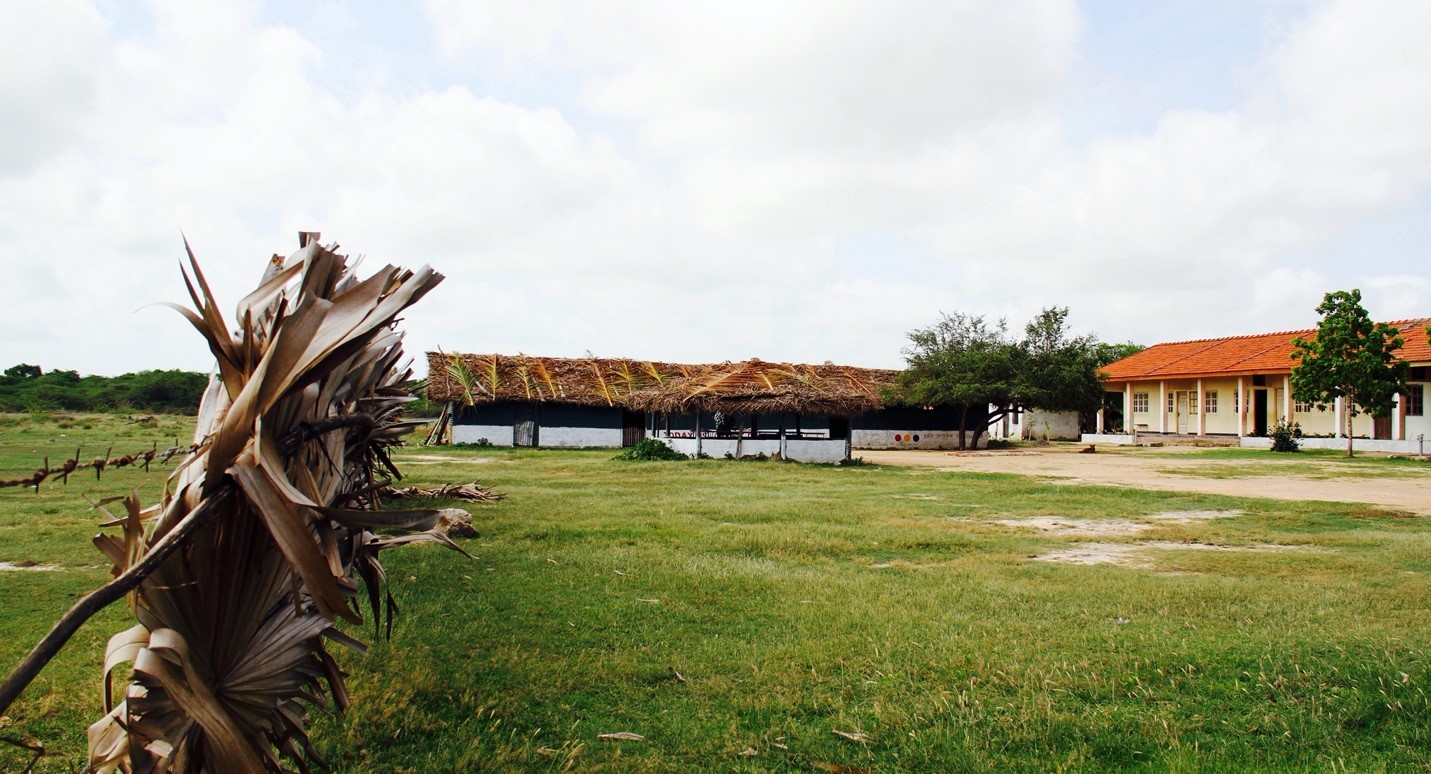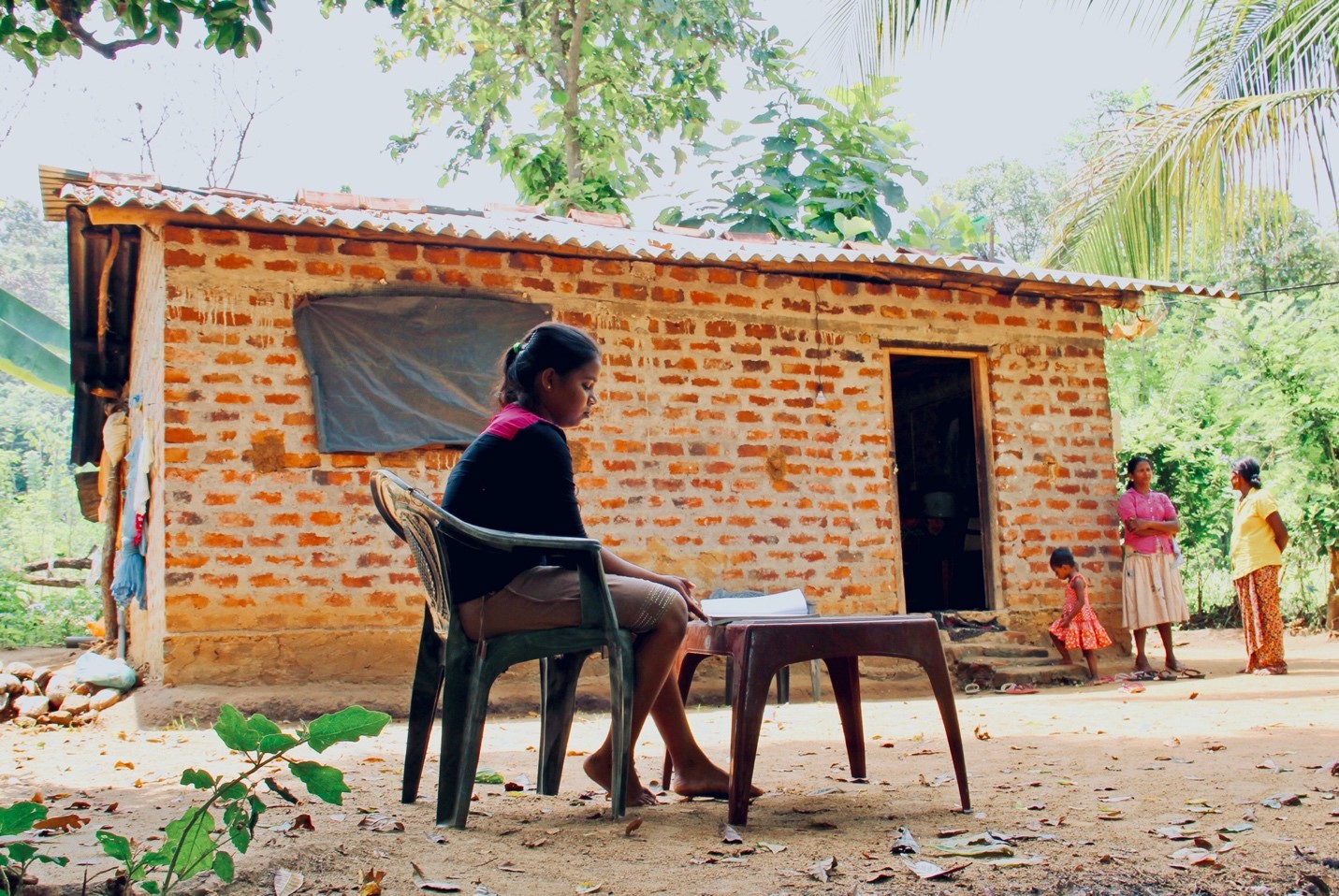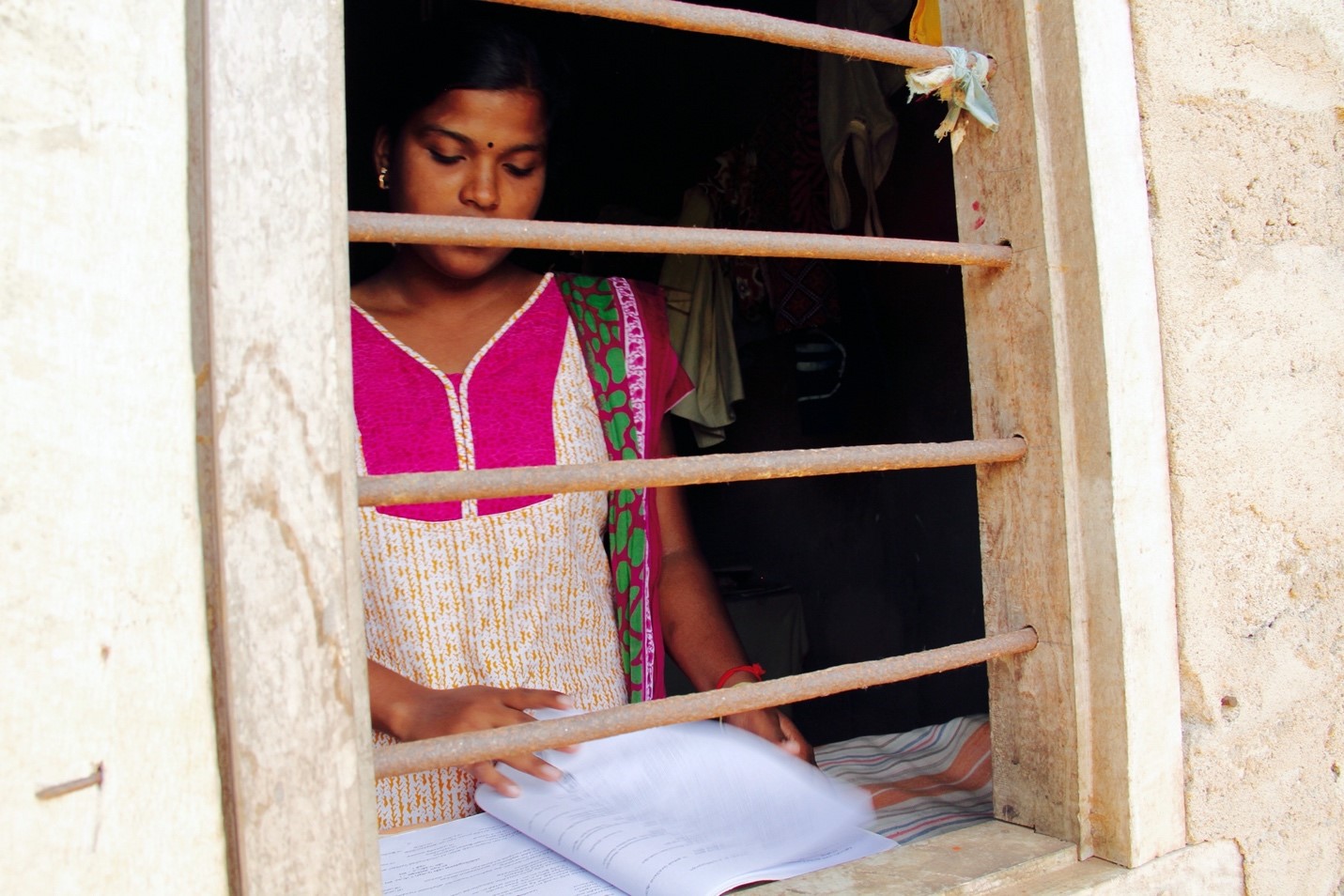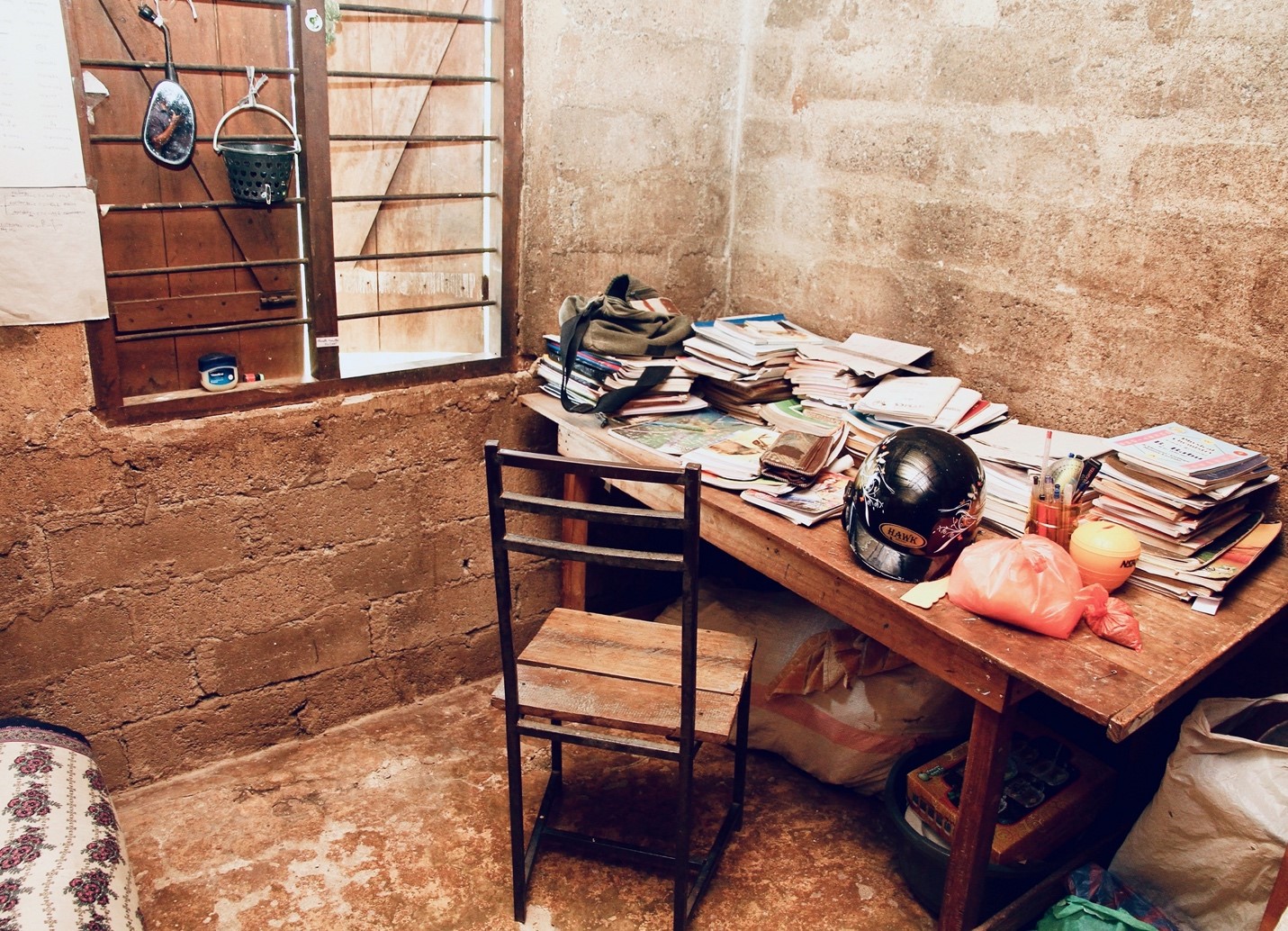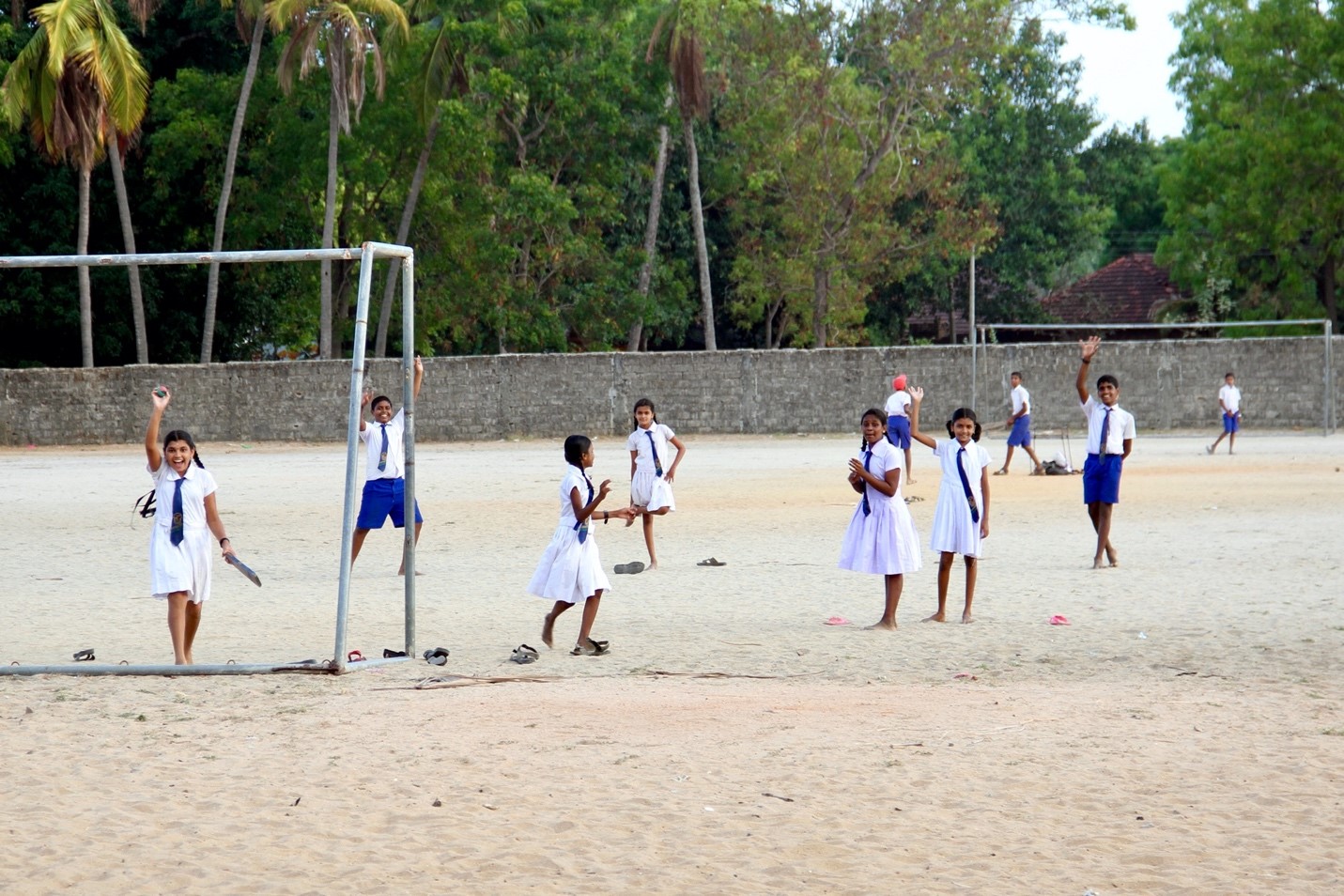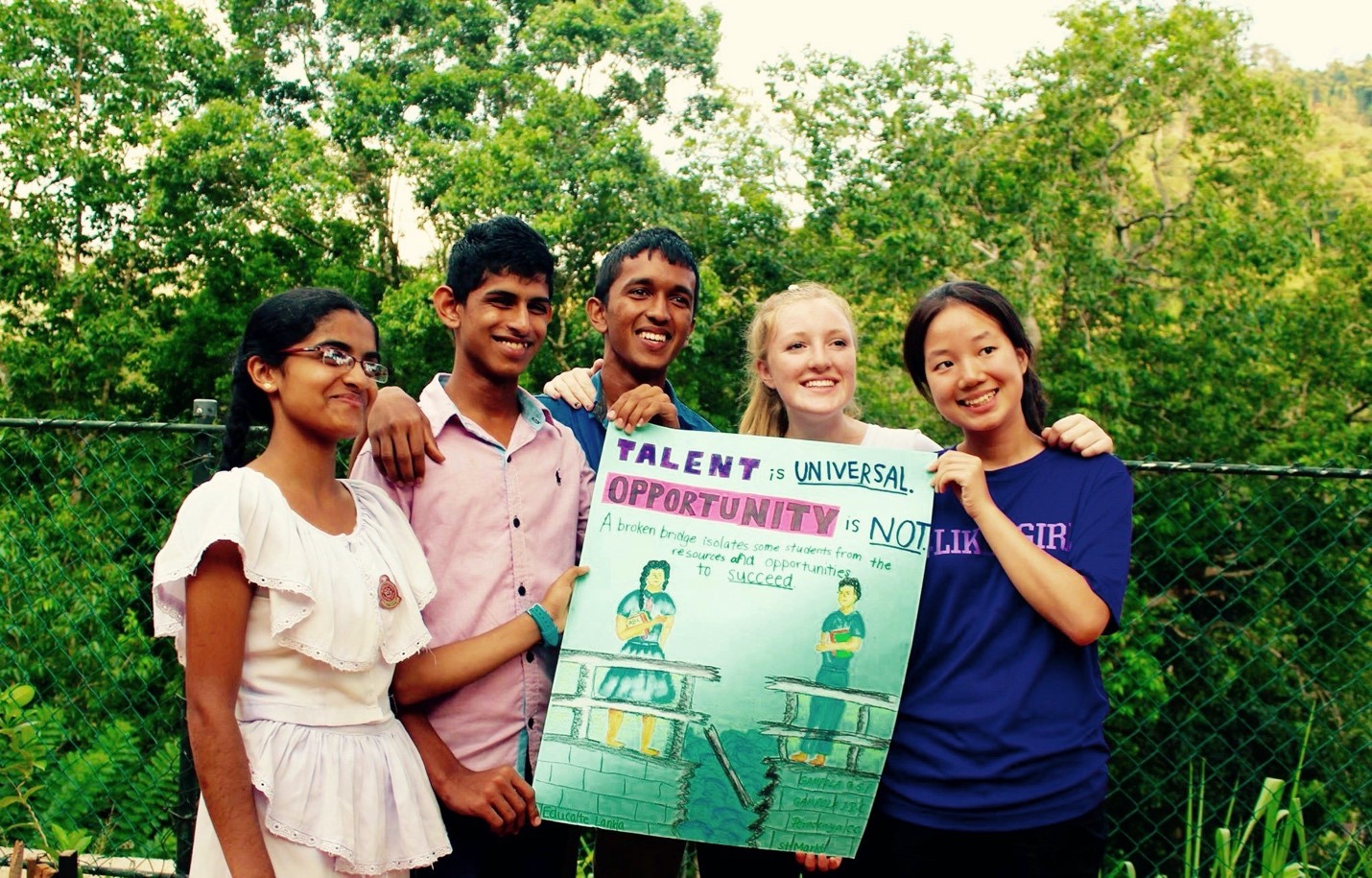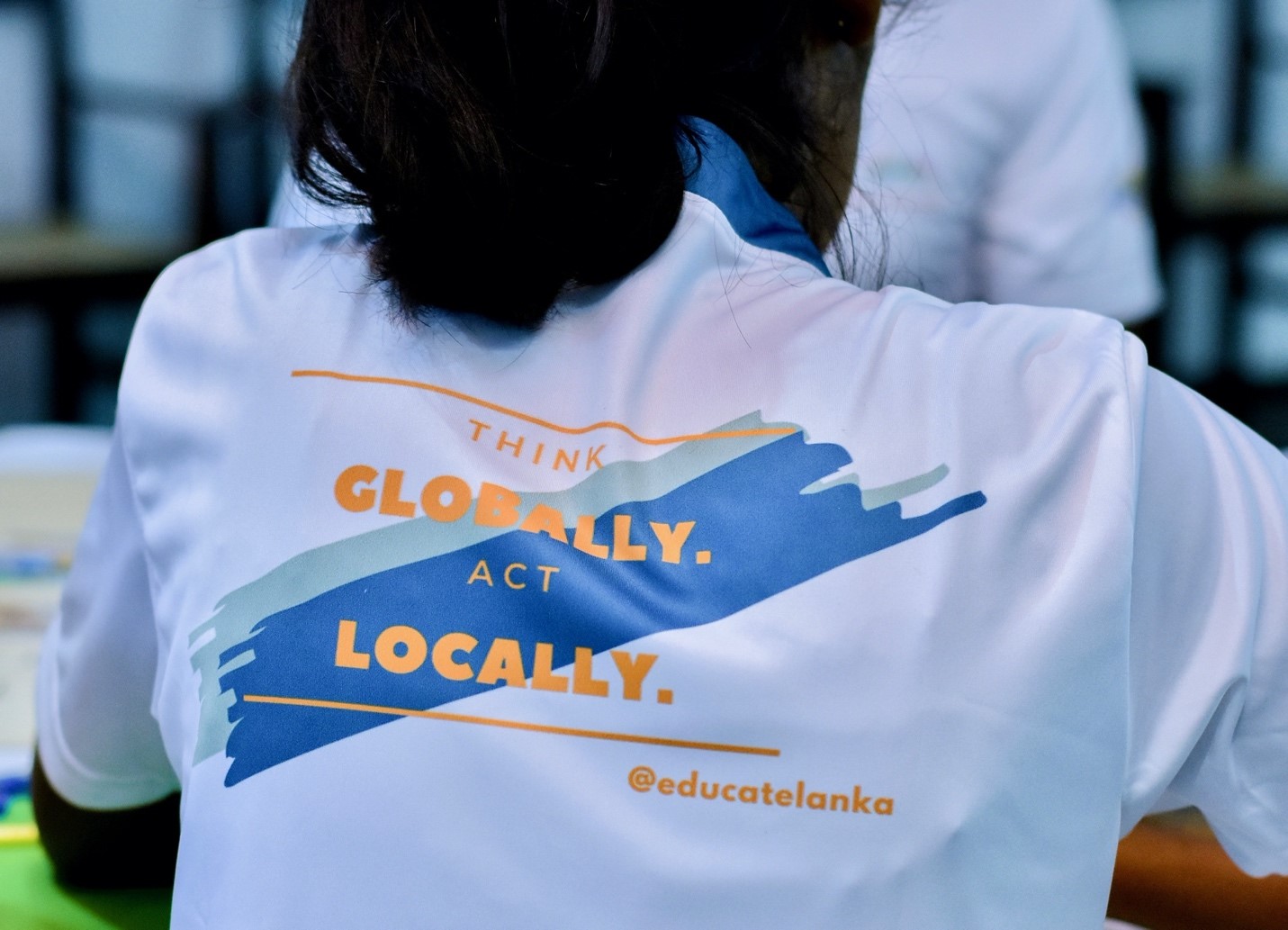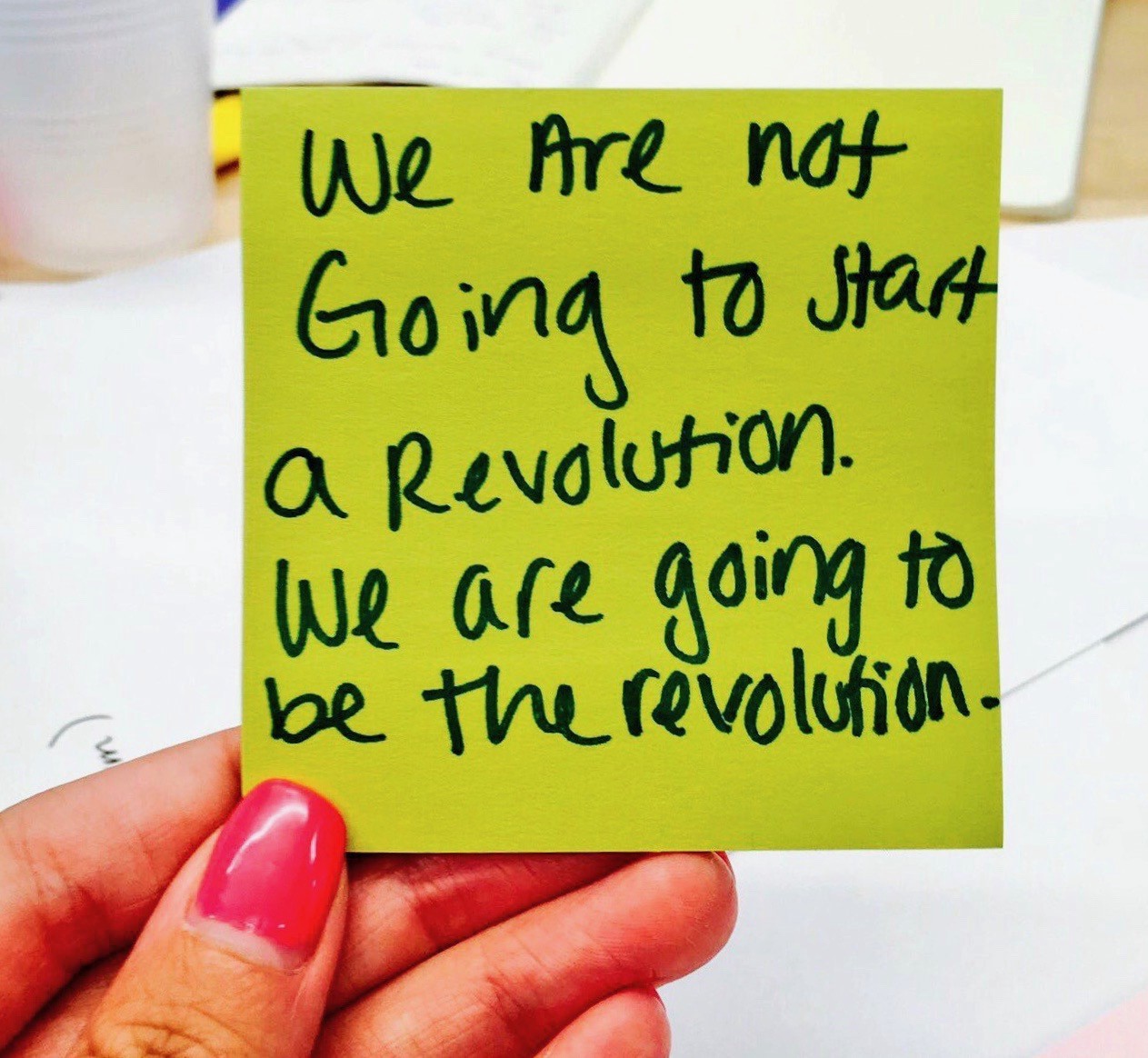A Silver Lining in a Pandemic: Educate Lanka’s Promise to a Post-COVID-19 Future
Categorized as: Asia, Education, Girls & women, Grantee, Leadership, Our Partners, Stories, Youth on October 24, 2020. Related Grantee: Educate Lanka.
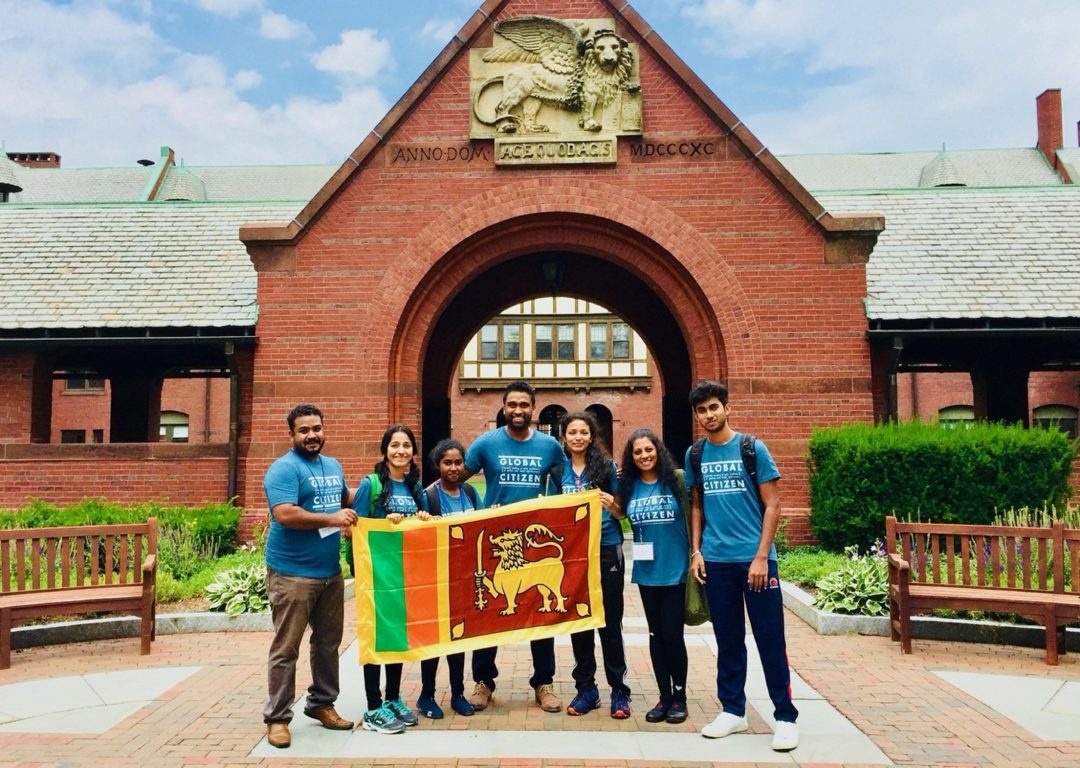
Editor’s Note: As schools re-open and teachers, students, administrators, and staff try to navigate new ways of teaching, our long term partner, Educate Lanka believes the pandemic has created an opportunity to re-invent education and learning post-COVID and that we ought not to squander that opportunity.
This piece was originally published on Medium.
This is a thought-piece on Educate Lanka’s commitment to our community and to the world at large for a post-pandemic future through the lens of re-imagined education.
The world-order that brought us here, needs an urgent paradigm shift.
Just as it has been for the world in general, it has been an unsettling few weeks for our team — from grappling with personal tragedies to finding our feet in a world filled with new uncertainty and ambiguity of the COVID-19 pandemic. As almost every country from the global north to the global south is wrestling with unprecedented decisions of having to choose between its public health and the economy — or simply lives versus livelihoods — the world is left with plenty of difficult dilemmas needing bold solutions.
While the world is still searching for those answers, this is our commitment and promise to our beloved community and the society at large for a re-imagined post-pandemic future.
Implications of Structural Imbalances of Our Society
Universally, COVID-19 has not been discriminatory when spreading the virus across all classes and ranks. Yet, the implications of our responses and decisions have been anything but equitable. The fundamental flaws and the structural imbalances of our society have been all too embarrassingly obvious and revealing — both with respect to the direct impact of the pandemic and its predictable aftermath. While a large percentage of fellow humans face famine, a small percentage watch their individual wealth climb even beyond the GDPs of some countries. Countries with the strongest militaries and defense budgets are left helpless witnessing their citizens die inside medical tents. As some are becoming restless with online learning or working from the comforts of their homes, others are starving having relied on schools or daily informal work for their basic meals.
We are anything but equal, on how each is affected by this global crisis.
Sri Lanka, while appears to be tackling the public health hazard reasonably, is exceedingly vulnerable to external shocks and faced with serious macroeconomic and socioeconomic consequences. Although extreme poverty is less-prevalent with Sri Lanka’s upper-middle income status, nearly 45% of the population live under $5 per day. This rising equity-gap, together with worsening debt crisis, is a severe concern for Sri Lanka as daily-wage earners (nearly 2 million) and informal employment (60% of employed) accounting for a significant portion of its labor force. The measures taken to handle the short-term health risk of COVID-19 such as physical and social distancing policies, curfews and lock-downs, shutting down of businesses and trade, and overall economic inactivity and related social stigma, will disproportionately impact a majority of Sri Lankans, especially in the marginalized communities.
These issues are very close to our heart given the socioeconomic circumstances of the families of Educate Lanka scholars.
It is extremely concerning how these additional economic and financial shocks would further amplify the plight of those households and directly impact their access to critical essentials such as food, healthcare, and education not only in the short-term, but also more alarmingly, in the long-term.
Committing to Step Up, Not Down
For over 10 years since inception, Educate Lanka’s journey has been defined by its resilience, and it will be no different when shaping our journey ahead. We believe that it is also this resilience, together with greater empathy, in people, institutions, organizations, and society as a collective unit that will determine how we respond and recover from this crisis. Therefore, we believe that it is both our responsibility and priority to step up to the challenge and join hands with others to proactively lead the road to recovery toward our new future.
On this road to recovery, we commit to first pause; and count our blessings. There has never been a better time than now to build and practice empathy by putting our own struggles and privileges into perspective. We commit to look inward to reflect, introspect, and reevaluate our values and priorities, and find ways in which we could re-envision a post-COVID-19 world that would have learned from our past. We commit to the wellbeing and security of the communities we serve — our beneficiaries and their families, our liaisons, our staff and volunteers, and our partners.
Building up on these commitments, we hold ourselves to the following resolutions:
- Expedite the disbursement of our micro-scholarships in the form of direct cash-transfers to Educate Lanka scholars and their families remotely, amid the prevailing restrictive circumstances, to ensure their access to critical essentials and emergency needs are met in the short-term.
- Reassure our continued support, commitment, and care for our direct and indirect beneficiaries and the larger stakeholder community to ensure that their physical and emotional wellbeing, safety and security, trust, motivation, and the overall outlook of their future are met and not further compromised.
- Plan and prepare to execute operations and implementation of our key program activities, which now have become more relevant and urgent, with agility and efficiency as soon as restrictions and measures are eased up and deemed safe.
- Strengthen and continue to lead and collaborate on efforts and movements in addressing the long-term and foundational deficiencies of our society — not just in Sri Lanka, but globally — that would reshape and redefine a more just, equitable, inclusive, and overall sustainable planet for everyone.
Every Crisis is Also an Opportunity: Re-Imagining Our Future
While the world eagerly awaits for its “new normal”, we cannot allow it to be shaped the same way as our “old normal.” Just as past pandemics and global crises have led to substantial positive changes in our society and social contracts, this would be our time to reset the world toward a more sustainable future that serves a collective purpose for the entire living planet, and not one that would be defined by individual interests.
We ought to remember that it is not just this pandemic that is unprecedented, but the opportunity presented to us today is also unparalleled. If we don’t seize it, it’ll go down in history as one of the greatest missed opportunities of humankind.
From a quick assessment of the world’s response to the COVID-19 pandemic so far, we can recognize key criteria and drivers for a successful mitigation and recovery: decisive, ethical, and compassionate leadership; empathic and compliant citizenry; solid social and welfare infrastructure and capacity; and equitable and inclusive access to resources and tools across all demographics.
Unfortunately, countries or even communities that meet these criteria today are the rare exception, not the norm.
Education as the Panacea
When re-imagining our future for a better tomorrow, Nelson Mandela’s prominent words: “education is the most powerful weapon which you can use to change the world” couldn’t be more truer or pertinent.
It is our strong belief that a revolutionary shift in our mindsets, priorities, values, and social contracts is only possible through an education that serves a purpose that is fundamentally different from what it served in the past.
The need for such a fundamental shift is even more evident when considering education’s current response to the pandemic the world over — which is to rely heavily on technology as the solution in absence of access to physical classrooms. The results have been hardly a solution. UNESCO assesses that schools in 191 countries have closed due to COVID-19 and around half of the 1.5 billion students who are kept out of the classrooms do not have access to basic digital resources or internet at homes. In Sri Lanka, computer literacy and digital literacy rates are at 27% and 40%, respectively. Even for those with access, transition, preparedness, and other basic infrastructure have been far from adequate for a productive learning environment or outcomes.
In fact, the digital and resource divide has further amplified the opportunity and learning gap for the marginalized — both across and within countries.
Taking these latest learnings and decades of evidence into account, we believe that the education we are reforming and re-envisioning for tomorrow need to embrace the following key objectives:
- Education’s fundamental purpose needs to shift from narrow cognitive outcomes and knowledge acquisition measured by tests and exams toward achieving a collective purpose of maximizing wellbeing.
- Learning should be lifelong and prepare individuals to thrive and succeed beyond school and work: toward understanding and embracing their role, duty, and responsibility to each other as global citizens in an interconnected world.
- Education needs to become learner-centered, personalized, and ubiquitous. Learning should not be dependent on a specific resource, context, or an environment, one-size-fits-all, or mass-produced.
- Curricula needs to be re-prioritized to make social and emotional learning and life skills— e.g. self-awareness and management, social awareness, empathy, problem-solving, critical thinking, teamwork, resilience, emotional intelligence — at the center of all learning around which learners are able to build and deepen their technical skills and expertise.
- Access to quality and relevant learning should become a universal right and be inclusive and equitable regardless of one’s resources, circumstances, or background.
While these aspirations seem a moonshot, the gravity and urgency of the challenge requires nothing short. These objectives are also not possible for a single leader, organization, or even a nation to achieve alone, especially at a time of a global leadership vacuum. This movement requires a collective effort and vision, strengthened and embraced by global solidarity.
We, at Educate Lanka, are pleased to have joined hands already with several such inspiring global initiatives: e.g. Education for Tomorrow’s World of the Salzburg Global Seminar; Karanga: the Global Alliance for Social Emotional Learning; Global Citizenship Institute of St. Mark’s School; The Learning Economy: A Steward of the Internet of Education; World in 2050: A Forum for Our Future; Hellenic/GenYize: Global Prosperity through Economic Opportunity. We are excited and optimistic about the collective contributions, innovations, and change we hope to unearth — both in Sri Lanka and globally — through these pioneering initiatives.
Our promise and commitment today is not just about overcoming the COVID-19 pandemic; it is about the future we envision for our children that would not be so dreadfully ill-prepared for the next global crisis, or better yet, the future in which there won’t be another crisis of this magnitude.
This is not about a single entity’s race to the top. Either we win collectively, or we lose alone. We are incredibly grateful to each and every one who has and continue to play a role and believe in our journey.
This unprecedented crisis has presented us with an unprecedented silver lining. Let’s seize it together. Now is the time.
October Updates
- Manjula organized and hosted two Focus Group Consultations among 30 global stakeholders of Karanga (Global Alliance for Social Emotional Learning) for UNESCO’s Futures of Education Initiative.
- Educate Lanka was a co-sponsor and a partner for the Global Talent Summit 2020 on “Education and Work Post-Pandemic.”
- Manjula spoke at an Annual High-Level Forum on “SDGs In Action to Make the Global Goals a Reality” at the 2020 United Nations General Assembly.
- Educate Lanka’s Partnership with Sysco LABS got highlighted as a blueprint for a social-private partnership for mentorship program.
Picture Credits: © Educate Lanka | Manilka Jayasingha Photography
LEARN more about Educate Lanka here.
SHARE this story with your networks; see menu at top and bottom of page.
DONATE directly to help support Educate Lanka here or directly SPONSOR a student here.
SUBSCRIBE! Like what you see? Click here to subscribe to Seeds of Hope!

